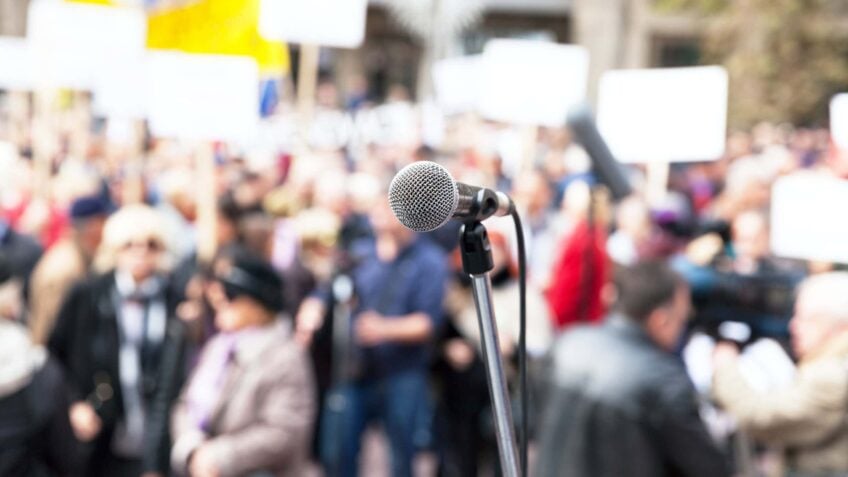Violent College Protesters Didn’t Defend Free Speech—They Undermined It
Universities must draw a clear line between protected expression and unlawful conduct
Arlington, Va. – Earlier this year, students at Barnard College in New York City, a private women’s liberal arts college affiliated with Columbia University, led various anti-Israel protests on campus, including a violent protest occupying Milbank Hall where participants assaulted an employee of the college.
Protecting students’ First Amendment rights is essential. However, occupying campus buildings and committing violent acts is illegal conduct, not free speech, and students who engage in this behavior should be held accountable.
Unfortunately, this was not the first time Barnard students have engaged in this behavior. Last year, amid nationwide encampment protests, which notably began at Columbia, a Barnard student was expelled for participating in the takeover of Columbia’s Hamilton Hall. Two other Barnard students were also expelled for disrupting a class, which sparked the recent protest at Milbank Hall.
Universities have struggled to find the balance in addressing antisemitism and protecting free speech on campus since Hamas’ October 7 attack on Israel. Universities have been slow to take action against students engaging in illegal behavior in the name of protecting their freedom of speech. It is difficult to see this as anything but an excuse for inaction when many of these universities consistently have the worst track records on free speech, according to the Foundation for Individual Rights and Expression’s campus free speech rankings.
Assaulting a college employee and attempting to breach police barricades are not activities protected by the First Amendment, even if they are done in protest. Yet, many students believe this behavior is acceptable and constitutes protected speech.
Another misconception many students believe is that the First Amendment allows you to use your speech to disrupt or shut down someone else’s speech. This misconception sparked the recent Barnard demonstrations, with protesters arguing that the students who were expelled for interrupting a class had their free speech rights violated. However, this is not the case.
A speaker who is shouted down or disrupted also has the right to free speech. By preventing them from communicating, the disruptor is violating the First Amendment rights of the speaker. This is often referred to as the “heckler’s veto.” While university leaders may be reluctant to punish this behavior because it is associated with political speech, letting seriously disruptive or illegal behavior occur not only destroys confidence in university leadership but creates a worse environment for speech on campus.
It is possible to address illegal behavior that goes beyond speech and seriously disrupts campus life while protecting the free speech rights of all students, regardless of their opinions on the Israeli-Palestinian conflict. The American Legislative Exchange Council (ALEC) has developed several model policies that address antisemitism but also protect free speech on college campuses. These policies can be found in our publication, Essential Policy Solutions for 2025.

